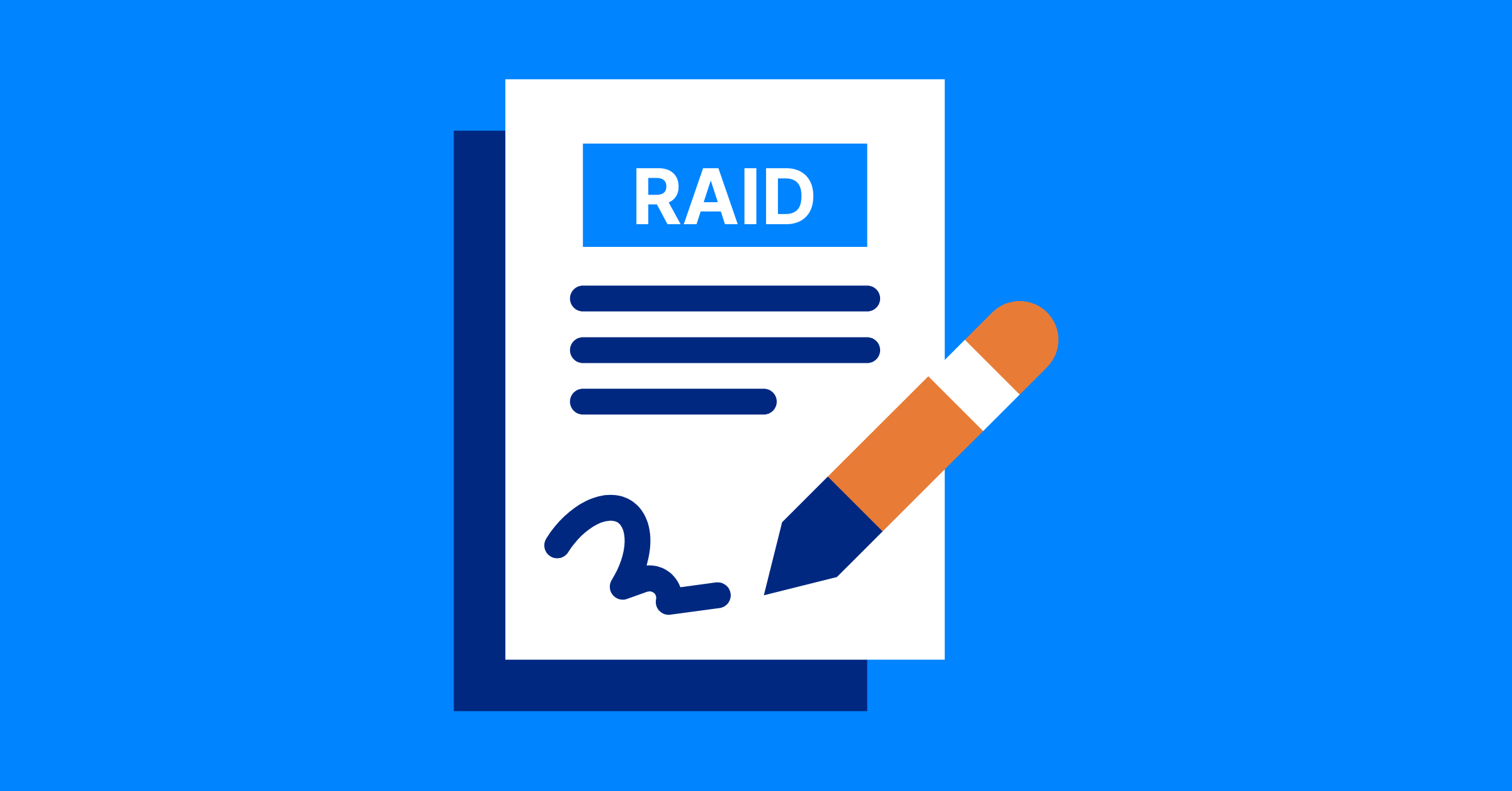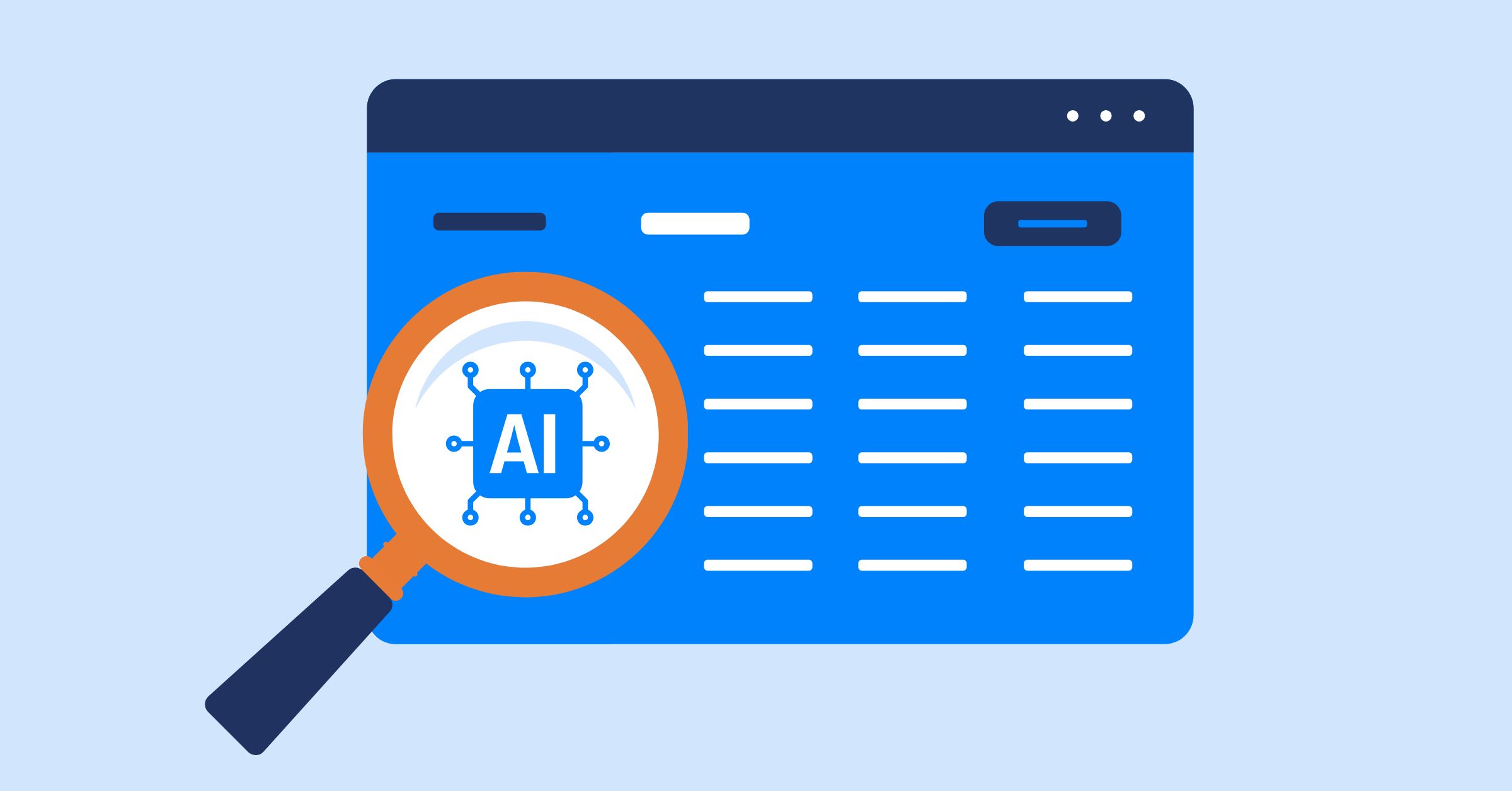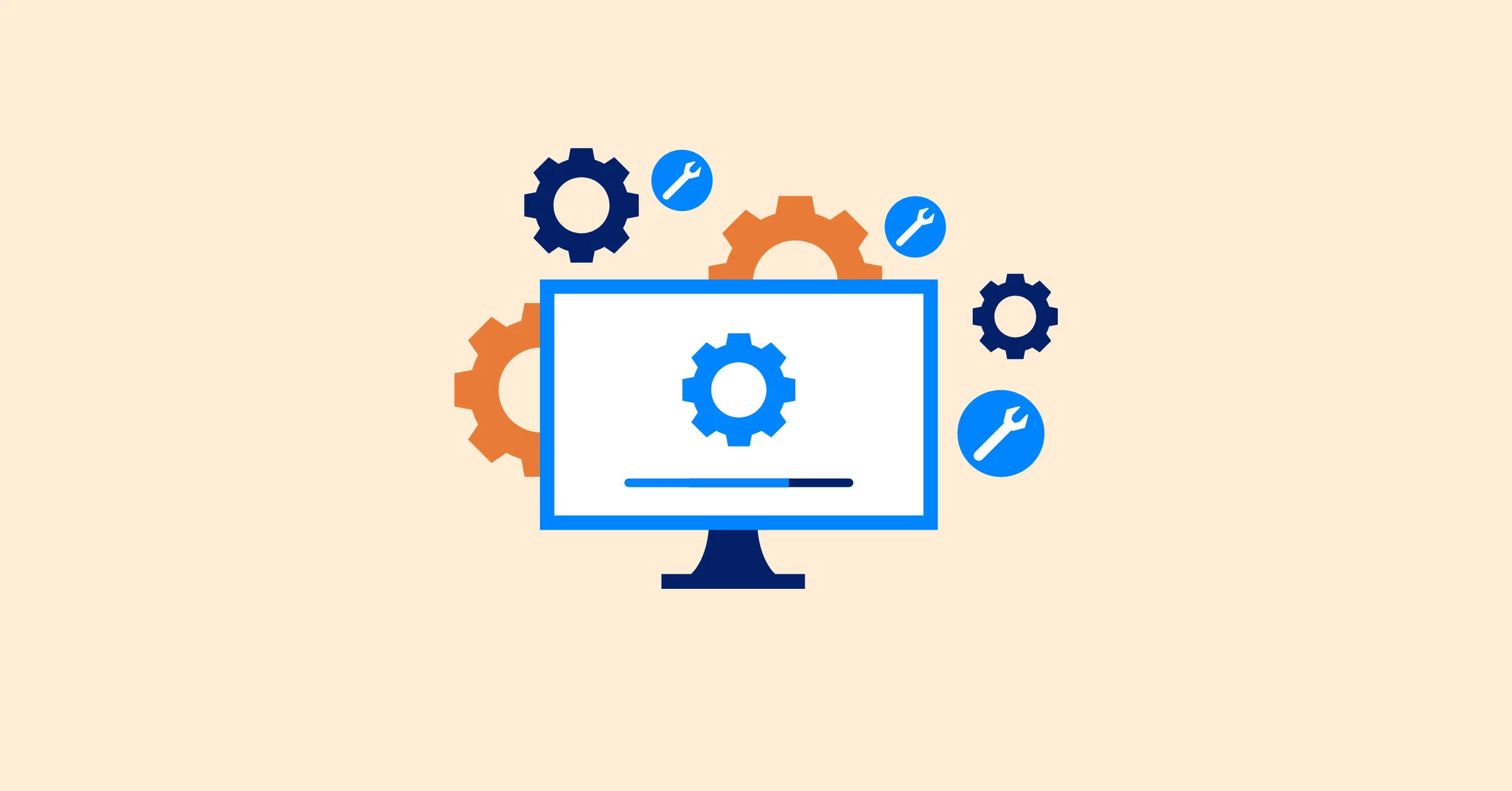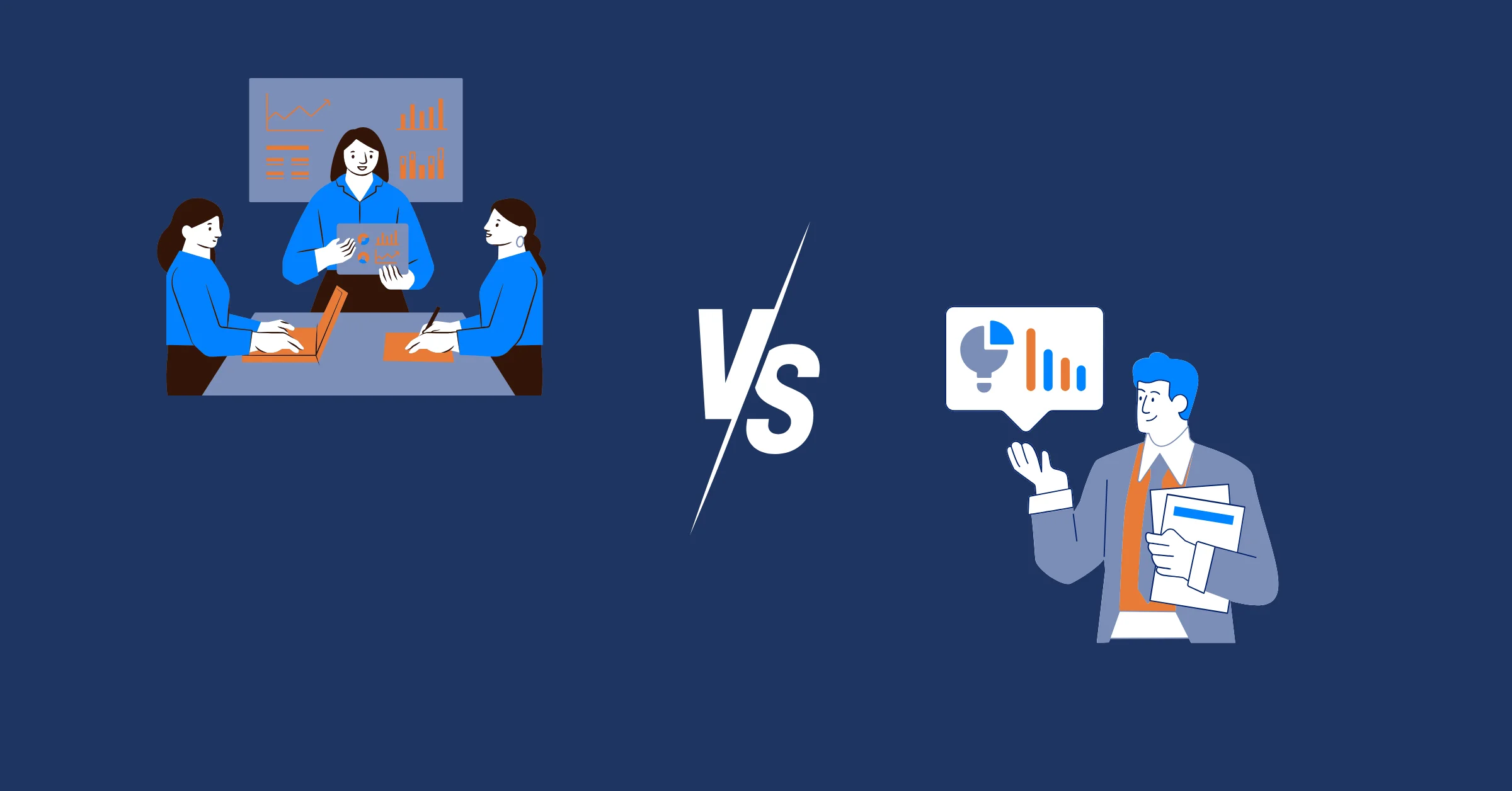AI Program Manager in 2025: Trends, Challenges, and Opportunities
Discover the role of an AI Program Manager in 2025: key trends, challenges, and opportunities. Learn practical tips to excel in AI project management, from leveraging AI tools to navigating ethical concerns.
The role of an AI program manager is evolving rapidly as artificial intelligence reshapes project management. In 2025, organizations across industries such as tech, healthcare, finance, and more are leveraging AI to drive efficiency, innovation, and decision-making. This blog post explores the key trends, challenges, and opportunities for AI program managers, offering practical insights for professionals navigating this dynamic field. Whether you’re new to the role or looking to refine your skills, this guide provides actionable strategies to succeed.
What Is an AI Program Manager?
An AI program manager oversees projects that involve artificial intelligence or machine learning (ML) technologies. Unlike traditional program managers, they bridge technical teams (data scientists, engineers) and business stakeholders to ensure AI initiatives align with organizational goals. Their work includes managing budgets, timelines, risks, and cross-functional teams while addressing AI-specific issues like data quality, model performance, and ethical concerns.
Key Responsibilities of an AI Program Manager
- Project Planning and Execution: Define scope, timelines, and deliverables for AI projects, ensuring alignment with business objectives.
- Team Coordination: Facilitate collaboration between data scientists, developers, and business leaders.
- Risk Management: Identify and mitigate risks, such as data bias or model drift.
- Stakeholder Communication: Translate technical concepts into business terms for executives and clients.
- Ethical Oversight: Ensure AI projects comply with regulations and ethical standards.
Trends Shaping the AI Program Manager Role in 2025
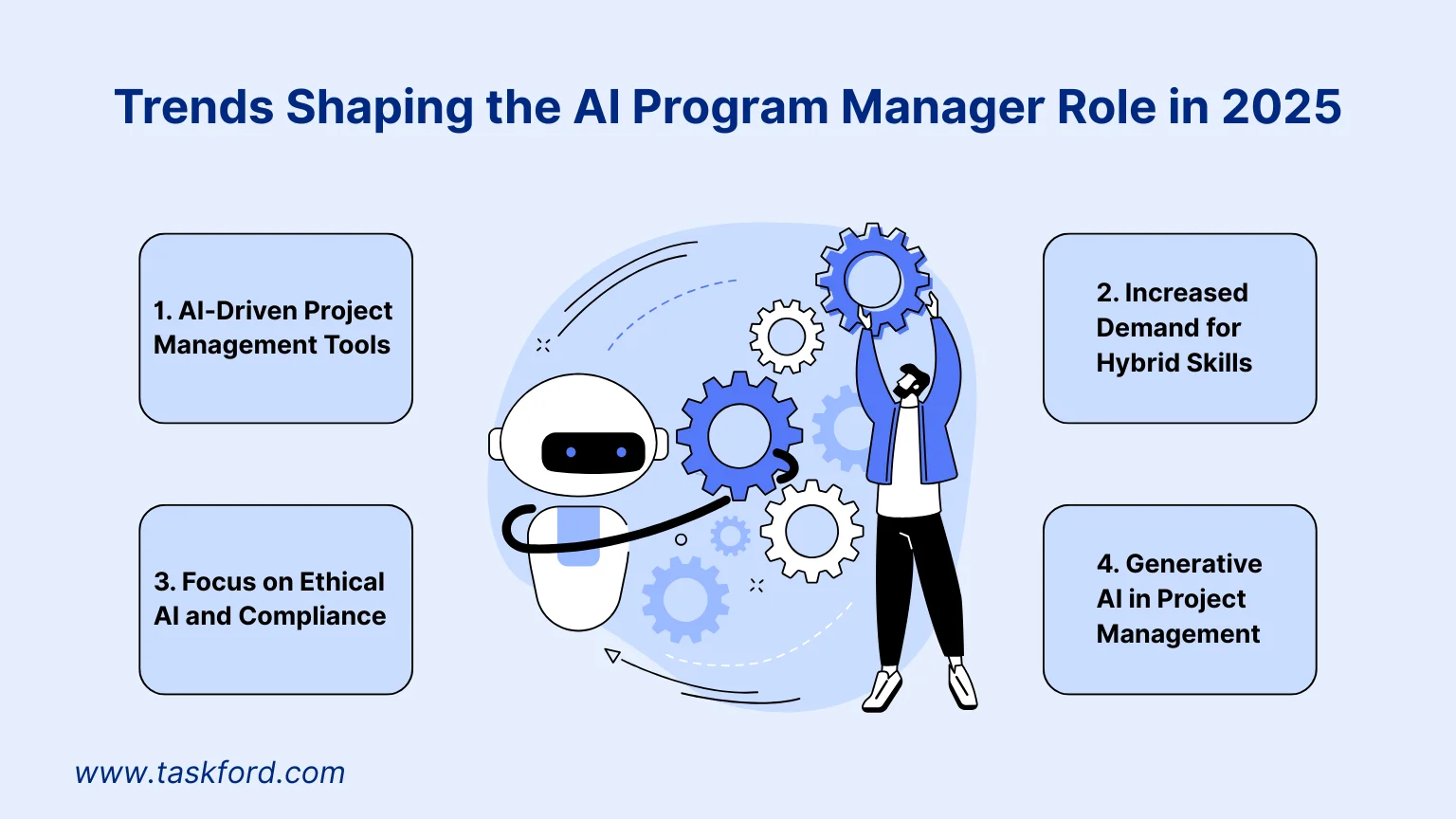
The rapid adoption of AI is transforming how program managers operate. Here are the top trends driving the role in 2025:
1. AI-Driven Project Management Tools
AI tools are automating repetitive tasks, enabling program managers to focus on strategy and decision-making. An AI-powered project management platform helps with scheduling, resource allocation, and risk prediction. For example, predictive analytics can flag potential delays before they occur, allowing proactive adjustments.
Practical Tip: Experiment with AI tools to automate routine tasks like progress tracking or resource forecasting. Start with one tool, measure its impact, and scale adoption across your team.
2. Increased Demand for Hybrid Skills
AI program managers need a blend of technical and managerial expertise. Understanding AI concepts like machine learning models, data pipelines, or APIs is critical, but so is proficiency in project management methodologies like Agile or Scrum. In 2025, employers prioritize candidates who can speak both “tech” and “business.”
Practical Tip: Take an online course on AI fundamentals or earn a certification like the AI-Driven Project Manager (AIPM). Pair this with Agile or PMP training to stand out.
3. Focus on Ethical AI and Compliance
With growing scrutiny on AI ethics, program managers must ensure projects adhere to regulations like GDPR or CCPA. This includes managing data privacy, mitigating bias in AI models, and ensuring transparency in decision-making processes.
Practical Tip: Create a checklist for ethical AI compliance, including data sourcing, model testing, and stakeholder reviews. Regularly audit AI systems to catch issues early.
4. Generative AI in Project Management
Generative AI tools, like those for content creation or task automation, are becoming integral to project management. AI program managers use these tools to generate reports, draft communications, or simulate project outcomes.
Practical Tip: Use generative AI for initial drafts of project plans or stakeholder presentations, but always review outputs for accuracy and alignment with goals.
For more on how AI is transforming the field, check out our article on AI in Project Management.
Challenges for AI Program Managers in 2025
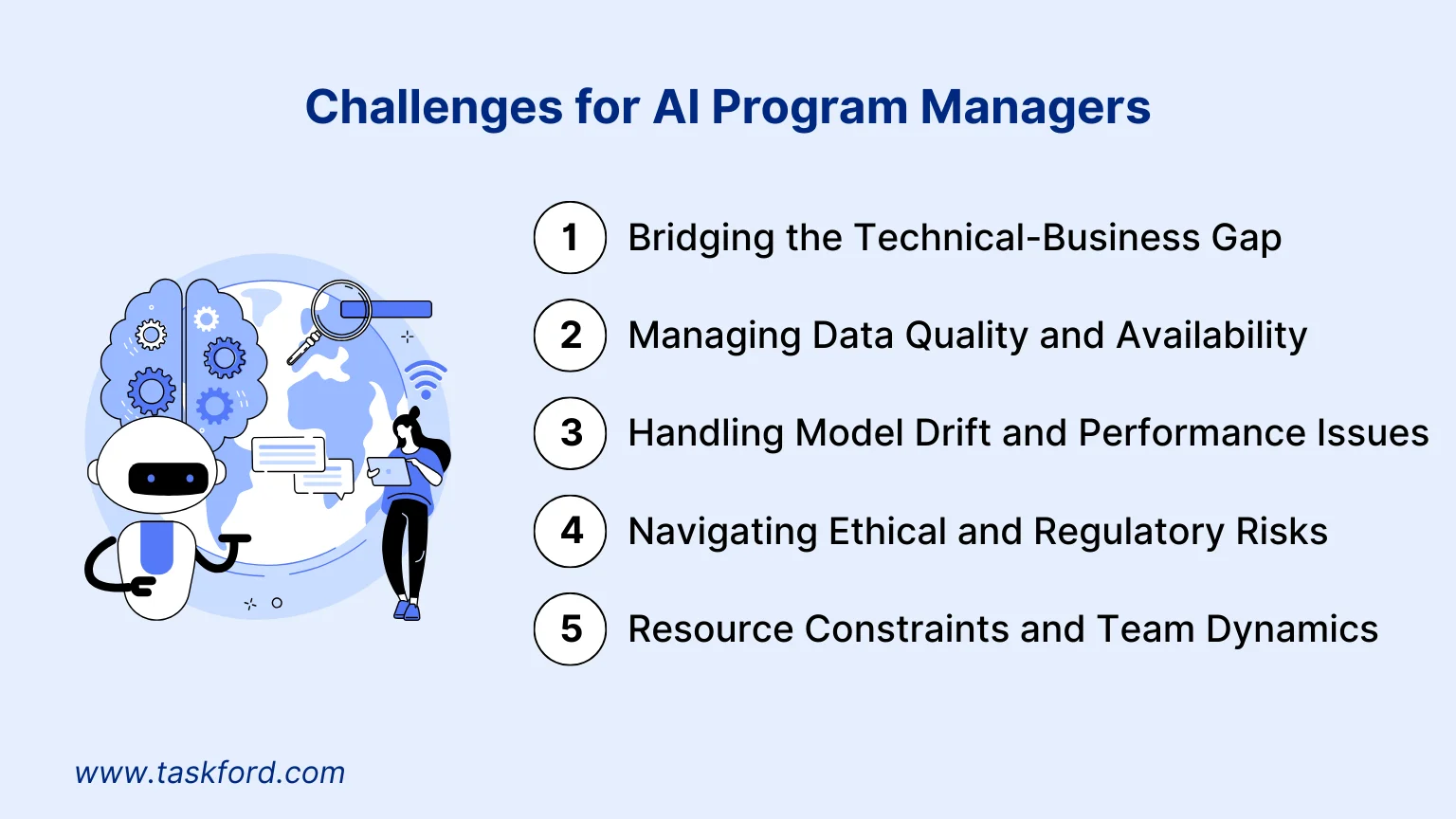
While opportunities abound, AI program managers face unique challenges that require strategic solutions. Here are the key hurdles and how to address them:
1. Bridging the Technical-Business Gap
AI projects involve complex technical concepts that can be difficult to communicate to non-technical stakeholders. Program managers must translate terms like “neural networks” or “data drift” into business impacts, such as cost savings or customer satisfaction.
Solution: Develop a “translation framework.” For example, explain model accuracy in terms of its effect on revenue or customer trust. Regular workshops with stakeholders can also align expectations.
2. Managing Data Quality and Availability
AI projects rely on high-quality data, but incomplete or biased datasets can derail outcomes. Program managers must ensure data pipelines are robust and accessible.
Solution: Collaborate with data engineers to establish data quality checks early in the project. Use tools like data profiling software to identify gaps or inconsistencies.
3. Handling Model Drift and Performance Issues
AI models can degrade over time due to changes in data patterns (model drift). This can lead to project delays or unmet objectives if not addressed.
Solution: Implement monitoring systems to track model performance post-deployment. Schedule regular reviews with data scientists to assess and retrain models as needed.
4. Navigating Ethical and Regulatory Risks
AI projects face increasing regulatory scrutiny, particularly around data privacy and bias. Non-compliance can lead to legal issues or reputational damage.
Solution: Stay updated on AI regulations in your industry. Partner with legal teams to ensure compliance and document all processes for audits.
5. Resource Constraints and Team Dynamics
AI projects often involve cross-functional teams with competing priorities. Program managers must balance resource demands while maintaining team morale.
Solution: Use resource planning tools to track availability and workload. Foster open communication through regular stand-ups or retrospectives to address conflicts early.
Opportunities for AI Program Managers in 2025
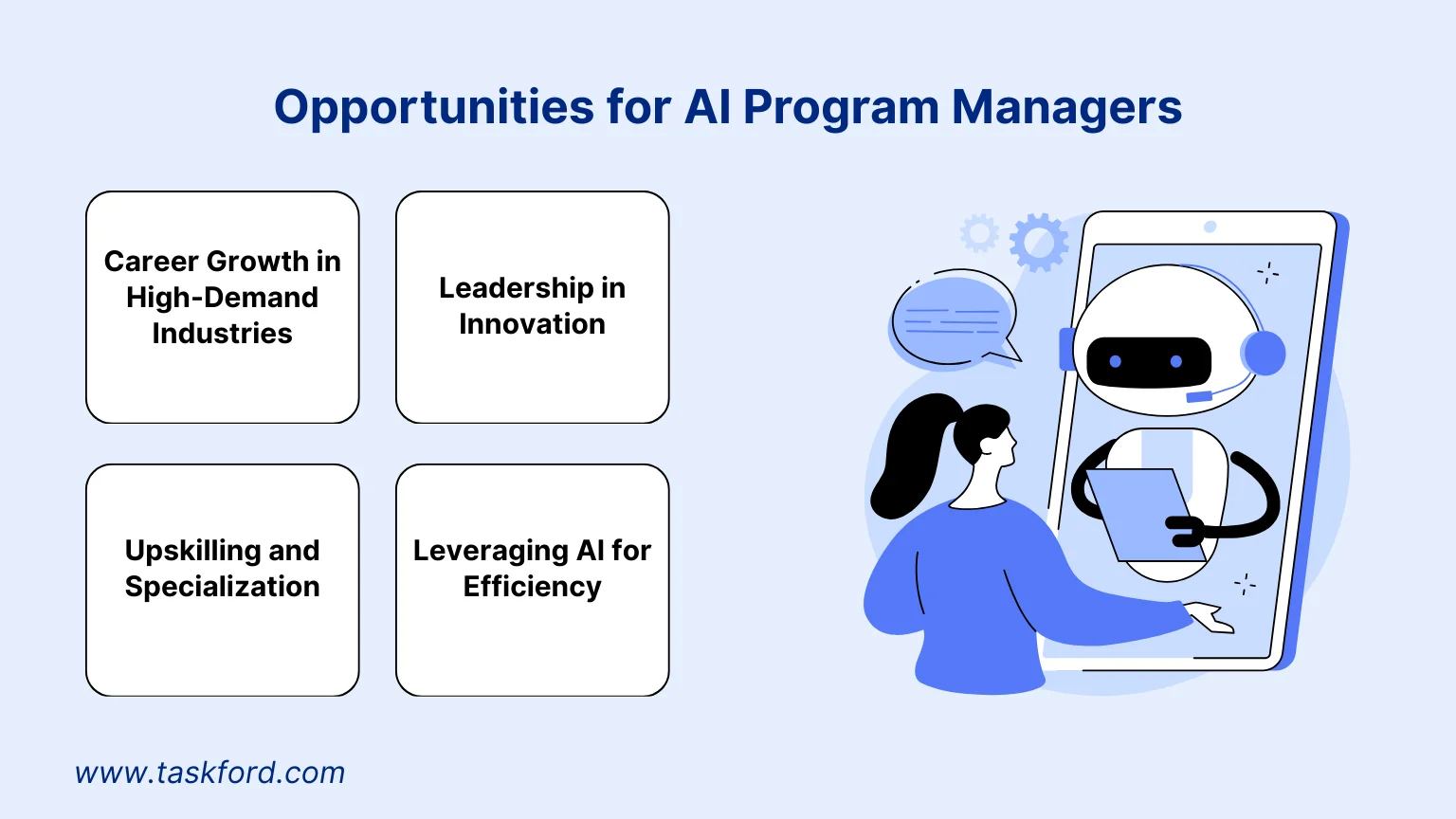
The challenges are significant, but the opportunities for AI program managers are equally compelling. Here’s how to capitalize on them:
1. Career Growth in High-Demand Industries
AI is driving transformation in industries like healthcare (e.g., predictive diagnostics), finance (e.g., fraud detection), and retail (e.g., personalized marketing). AI program managers are in high demand to lead these initiatives.
Action Step: Explore job boards for AI program manager roles in your target industry. Tailor your resume to highlight relevant AI project experience.
2. Leadership in Innovation
AI program managers are at the forefront of innovation, shaping how organizations leverage AI for competitive advantage. Leading successful AI projects can position you as a thought leader.
Action Step: Share your project successes through case studies or industry talks. Publish insights on platforms like LinkedIn to build your professional brand.
3. Upskilling and Specialization
The rise of AI-specific certifications and training programs offers a chance to specialize. Certifications like AIPM or courses in data science fundamentals can enhance your expertise.
Action Step: Enroll in a reputable AI or project management course. Platforms like Coursera offer flexible options for busy professionals.
4. Leveraging AI for Efficiency
AI tools can streamline program management tasks, from automating scheduling to predicting risks. Mastering these tools can make you a more effective leader.
Action Step: Test AI tools for project tracking, document time savings, and share results with your team to encourage adoption.
To dive deeper into the role, read our guide on AI Project Manager.
How to Prepare for Success as an AI Program Manager
To thrive in 2025, AI program managers should focus on the following:
- Build Technical Knowledge: Learn the basics of AI/ML, including data pipelines, model training, and deployment. Resources like online courses or tech blogs can help.
- Strengthen Soft Skills: Communication, leadership, and problem-solving are critical for managing diverse teams and stakeholders.
- Stay Agile: Use Agile or hybrid methodologies to adapt to the iterative nature of AI projects.
- Network with Experts: Join AI and project management communities to exchange ideas and stay updated on trends.
- Prioritize Ethics: Embed ethical considerations into every project phase, from data collection to model deployment.
Conclusion
The AI program manager role in 2025 is both challenging and rewarding, blending technical expertise with strategic leadership. By staying ahead of trends like AI-driven tools and ethical compliance, addressing challenges like data quality and stakeholder communication, and seizing opportunities in high-demand industries, you can excel in this dynamic field. Start by exploring AI tools, upskilling through certifications, and applying practical strategies to your projects.
For more insights into project management, explore our resources on What is Project Management. Stay proactive, keep learning, and lead the future of AI-driven projects with confidence.
Making work simpler,
smarter, and more connected
Join our waitlist and be notified first.

Related Blog
Subscribe for Expert Tips
Unlock expert insights and stay ahead with TaskFord. Sign up now to receive valuable tips, strategies, and updates directly in your inbox.

